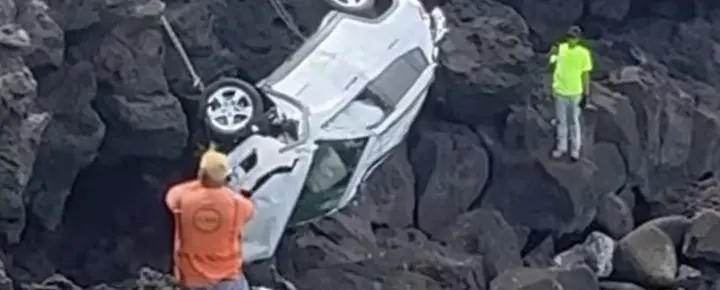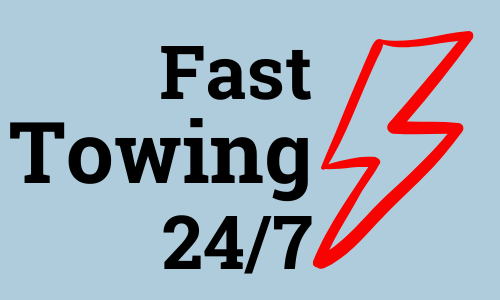Avoiding Towing Nightmares in Hawaii | Visitors Beware
When you’re on a Hawaii vacation, the last thing you want is to deal with the hassle and expense of getting your car rental towed. Unfortunately, residents and Hawaii visitors can find themselves at risk of facing unexpected towing charges that can quickly sour a long-awaited tropical vacation.

The cost of towing in Hawaii and how not to get scammed.
A recent news story highlighted a shocking incident where a tow company in Hawaii charged drivers $900 for every 15 minutes their vehicle was impounded. One driver received a bill for $2,000, causing an uproar and leading to refunds for hundreds of others. This resident incident caught the attention of lawmakers, including the Hawaii Department of Commerce and Consumer Affairs, which launched an investigation into towing practices. The investigation revealed that the towing company was exploiting a loophole in the regulations, which prompted officials to propose even stricter protection guidelines.
This incident reminds us of the importance of knowing the potential towing costs and regulations.
Visitors are unfamiliar with state regulations and can quickly be taken advantage of. Here’s what to know and what to do:
Tow company must accept cash, credit cards, or debit cards. If you are asked to pay only with cash, that’s a state violation.
If you arrive within 50 feet of the scene before the tow truck drives away, the car must be released to you without payment. Take photos.
Regulated charges are $65 for a tow or $75 for a tow using a dolly, plus $7.50 per mile and $25 per day for storage. Additional fees are $30 for a difficult hookup and $15 for towing off hours.
Refer to this link that has the current state towing regulations and show it to the tow truck company if they want to charge you more: https://www.capitol.hawaii.gov/hrscurrent/vol05_ch0261-0319/hrs0290/hrs_0290-0011.htm
If you were asked to pay cash only or charged more than the state allows, file a complaint using this link: https://hdcca.hawaii.gov/s/consumer-complaints
Real-life consequences for Hawaii tourists.
Earlier this year, we covered an article about Hawaii hiker rescue reimbursement and a visitor who drove off a cliff in their rental car. With many comments from concerned readers, this story clearly resonated with others.
One reader remarked, “It’s crucial for tourists to understand the risks involved with unfamiliar terrain and parking in prohibited areas.”
Another commenter shared a personal experience: “I once parked in what seemed like a safe spot near a trailhead, only to return and find my car towed. The signage was unclear, and it cost me a fortune to get my car back.”
When scenic views and awaiting adventures result in parking mishaps.
These insights serve as a reminder that Hawaii visitors, like residents, can easily find themselves in precarious situations that can lead to their vehicles being ticketed, towed or worse.
Hawaii’s scenic views and adventurous trails can sometimes lead visitors to park in prohibited areas or on private properties, resulting in their vehicles being towed. The cost and inconvenience of retrieving a towed vehicle can disrupt a vacation.
Lanikai Beach is one example of a serious Hawaii parking problem.
Lanikai Beach, an ultra-popular visitor destination for its stunning views and serene waters, has long faced significant parking challenges due to its residential location and lack of public parking facilities. The residents have taken drastic measures to prevent illegal parking, including placing large obstructions like boulders, traffic cones, and even unofficial “no parking” signs.
The Honolulu Police Department frequently issues citations and enforces parking bans during busy weekends to ensure emergency vehicles can access the area quickly and safely. Rather than get into trouble, visitors are encouraged to use parking spaces at Kailua Beach and walk to Lanikai Beach to avoid contributing to the problem and risking getting ticketed or towed.
Steering clear of Hawaii towing troubles.
To help you avoid the stress and expense of towing:
Carefully check for signage: We’ve been guilty of this ourselves, especially in Honolulu, which has gotten us into big trouble. Before parking the vehicle, we now first look for any signs indicating parking restrictions or tow-away zones. And then we take photos of them just for our own form of double-checking. Ignoring these signs results in a hefty fine and towing fee. Hawaii Revised Statutes do require that property owners clearly post towing notices with specific warning information.
Use designated parking areas: In popular tourist areas, always use designated parking lots or garages, or just don’t park. These areas are usually safe from towing, and you can enjoy your Hawaii beach or other visit without worry.
Getting ticketed and towed can be a costly and stressful experience.
That’s even more true when you’re on an expensive Hawaii vacation. Please share your experiences and advice in the comments below and help fellow travelers stay out of trouble.
